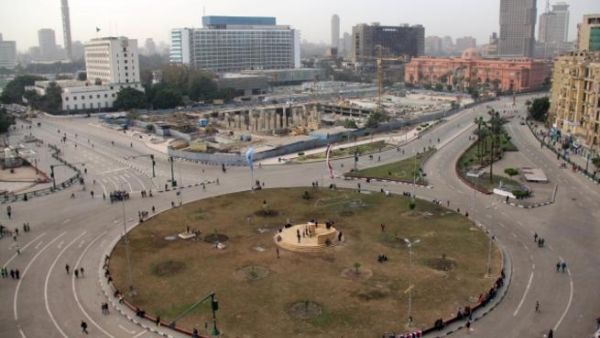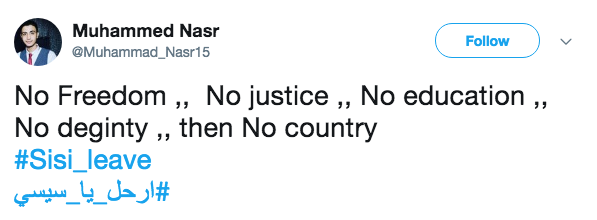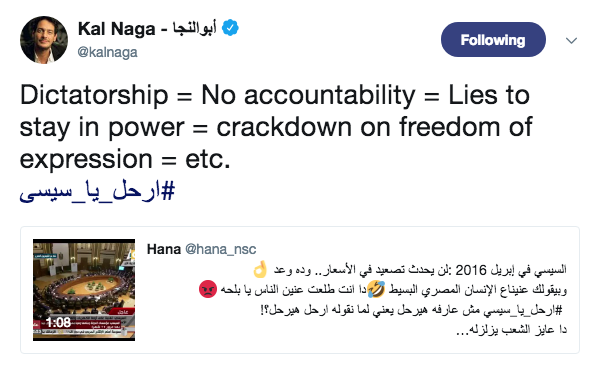By Randa Darwish
Hashtag: “ارحل يا سيسي” and “Sisi Leave” has been trending in the past few hours in Egypt with people urging the Egyptian President, Abdel Fattah Sisi to resign amid recent austerity measures carried out as part of economic reforms ordered by the International Monetary Fund (IMF).
While Egyptians were celebrating Eid al-Fitr last weekend, Sisi’s government surprisingly declared on Saturday a slash in fuel prices and transportation by 50%, in addition to an increase in electricity prices and piped drinking water.
For the third time since Egypt floated their pound in 2016, the government increase prices with expectation to pile more pressure on Egyptians struggling to make ends meet. This comes as the price of a loan from the IMF.
Egyptians have not fully recovered from the 2011 uprising that resulted in ousting longtime President Hosni Mubarak.
On social media, Egyptians discussed putting an end to the struggles they have been living in the past few months.
The hashtag flooded Egyptian social media, with people urging Sisi to leave threatening of going on protests that might be similar to 2011 uprising.
An Egyptian actor, producer and director based in LA, Khaled Abol Naga, re-tweeted an old video for President Sisi in 2016 while he is promising that there will be no future increase in Egypt.
Some users went to remind Sisi of earlier remarks he made on his leaving when he said: “If you want me to quit, I will quit.”
Others went to repost images from 2011 uprising known as the January 25 Revolution, calling on Egyptians to do it again.
Besides the economic unrest and hard living conditions, Sisi has been curbing freedoms through several detentions of activists, human right lawyers as well as journalists.
Sisi, was re-elected in April 2018 and won a landslide victory by 97.8% against no competens, urging Egyptians to be patient until all goals are met and economic conditions improve.
This comes seven years after the January 25th, 2011 revolution, in which Egyptians took to the streets inspired by their Tunisian neighbours, end 30 years of dictatorial Hosni Mubarak’s regime.
Since 2011, major changes took place in Egypt as the political leadership changed, firstly, Mohammed Morsi won first elections after the revolution in June 2012, before he was ousted by the military on 3 July 2013.
However, the only remaining thing is the worsening living conditions of Egyptians who are struggling for justice and living in dignity.

















